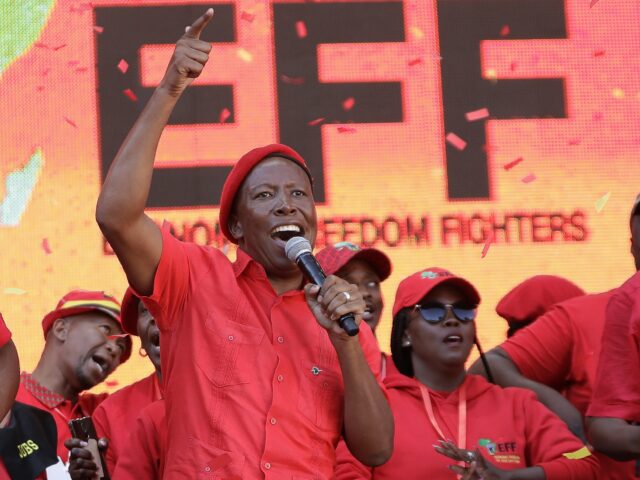Julius Malema, leader of South Africa’s Economic Freedom Fighters (EFF) party, led supporters in controversial chants advocating violence against farmers. President Cyril Ramaphosa has remained silent on the incident, raising concerns about leadership and national security in the nation.
South Africa’s Malema Repeats ‘Kill the Farmer’ as Ramaphosa Stays Quiet

Key Takeaways:
- Julius Malema led chants advocating violence against farmers at an EFF event.
- The incident occurred on Sunday, bringing immediacy to the concerns.
- President Cyril Ramaphosa has not addressed the incident publicly.
- The chants have sparked debates over racism and national security in South Africa.
- The lack of response highlights tensions within the country’s political landscape.
South African Leader’s Violent Chants Stir Controversy
Introduction
Julius Malema, a prominent opposition figure and leader of the Economic Freedom Fighters (EFF) party in South Africa, has ignited controversy after leading supporters in chants that advocated violence against farmers during an event on Sunday. The incident has raised serious concerns about racism, national security, and the country’s political stability.
Background on Julius Malema and the EFF
Malema is known for his outspoken nature and radical approach to addressing economic disparities in South Africa. The EFF, founded in 2013, positions itself as a champion for the economic emancipation of the marginalized majority. The party’s rhetoric often centers on land redistribution and confronting the remnants of apartheid-era inequalities.
Details of the Incident
At the recent EFF event, Malema led attendees in chants that called for violent actions against farmers, a move that has been met with widespread alarm. The farmers, many of whom are part of the country’s white minority, have historically been at the center of land ownership debates. The chants have been criticized for potentially inciting violence and exacerbating racial tensions within South Africa.
President Ramaphosa’s Silence
President Cyril Ramaphosa has not issued any statements regarding the incident, a silence that has drawn criticism from various sectors. Observers argue that the president’s lack of response may be interpreted as tacit approval or a reluctance to confront divisive issues within the nation. The absence of official condemnation raises questions about the government’s stance on hate speech and incitement.
Implications for South Africa
The incident underscores underlying tensions in South Africa related to race, land ownership, and economic inequality. Advocating violence threatens to undermine the nation’s efforts to foster reconciliation and social cohesion post-apartheid. Analysts warn that without prompt and decisive action from leadership, such rhetoric could lead to increased polarization and potentially spur actual violence.
Conclusion
Julius Malema’s actions have placed a spotlight on South Africa’s ongoing struggles with inequality and national identity. The international community and South African citizens alike await President Ramaphosa’s response to this provocative incident. The government’s handling of the situation may prove pivotal in determining the country’s path toward unity and stability.











